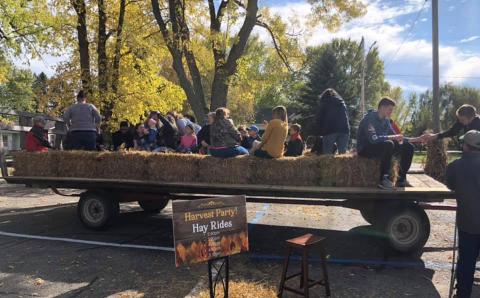When COVID-19 forced LaGrave Ave. Christian Reformed Church in Grand Rapids, Mich., to shut its doors to in-person worship back in March, church leaders made sure that all members would be able to participate in online services.
“We realized that some of our older members were not as comfortable with technology as others, so we helped ensure that those with computers and tablets knew how to access our livestream service,” said Rev. Ruth Boven, LaGrave’s minister of pastoral care.
A recent United Nations report on aging says that an aging population is “poised to become one of the most significant social transformations of the 21st century, with implications for nearly all sectors of society. By 2050, one in four persons living in Europe and Northern America could be aged 65 or over.”
As a denomination, is the CRC being intentional in its engagement with and support for people in their third third of life (over age 55)? How do we help them stay connected and fully included in the life of the church? How has the global pandemic affected our connections with our seniors? Are we responding with creativity and passion to these questions?
Disability Concerns spoke to a number of denominational leaders to learn what the CRC and other faith communities have been doing, specifically during the pandemic, to make sure that all members, especially older people, are staying connected.
Here are a few of the stories we heard:
- A Methodist church made sure that a woman in her late 80s had the technology she needed to join a weekly online Bible study.
- Young adults from a Baptist church connected with older members who felt isolated by shopping and running other errands for them and checking in with them by phone.
- Another church collected or purchased and configured tablet computers so seniors who were shut in could easily access online worship services.
- Pease (Minn.) CRC worked with the local Elim Home assisted living facility to make sure residents could join Sunday morning worship services and Friday morning Zoom “coffee time” with the rest of the congregation. The Elim Home staff either helped the residents set up their own laptops or showed the gatherings on the TV in a common area.
- Younger members of Baldwin (Wisc.) CRC wrote cards of encouragement that were sent to local shut-ins.
- A pastor in Iowa delivered hard copies of his sermon to the doorsteps of elderly parishioners that didn’t have access to technology.
“All these examples help us remember that we are the church. We are the body of Christ,” said Mark Stephenson, director of Disability Concerns. “It is our job to work with other members of the body so that all belong. While we are living through a time in history that is riddled with examples of grief and sadness, we are called to deliver hope.”
Disability Concerns and Faith Formation Ministry have collaborated to create The Third Third of Life Toolkit, which offers resources and tips for congregations wanting to find creative ways to support and encourage older members. Find it online at crcna.org/FaithFormation/toolkits/third-third-life-toolkit.
About the Author
Becky Jones, Disability Concerns







